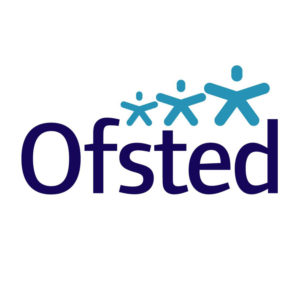Chapter Contents
- Delegated Authority
- Safety Considerations
- Overnight Stays
- Holidays
- Alternative Care Arrangements
- Travel Safety
Delegated Authority
Foster parents should be given delegated authority to make day to day decisions, e.g. regarding school trips, activities or sleepovers. These are fundamental to supporting the child in building self-esteem, trust and developing strategies to manage feelings and behaviour. Good communication and planning are important in helping the child to develop independence skills and resilience.
The Placement Plan will cover the boundaries of delegated authority for each child and their foster parent.
See our Delegated Authority chapter for more information.
Please also see our policy on Delegated Authority
Training opportunity: Delegated Authority – book on Learnative
Safety Considerations
Foster parents have a responsibility to know where children and young people are when they go out. This includes knowing where the child is going, with whom, and when they expect to be home. If the child does not return at the pre-arranged time or is not at a pre-arranged meeting place, you should refer to the Children Missing from Care policy in order to take appropriate action.
When young people go out (alone or with friends), always establish some ground rules. They should always tell you where they are going and come home at an agreed time.
You will need to support children and young people to stay safe when they are out. Talk with them about problems that they may have when they are out on their own, and how to get help if they are in trouble. Make sure they have your phone number to contact you if they need your help. They may need you to walk with them a few times if going to an unfamiliar place. You may need to help an older child learn to travel independently, e.g. bus routes, fares, trains, understanding timetables.
Overnight Stays
The child’s social worker will need to agree any arrangements for a child to stay somewhere else overnight, and they will clarify this in the delegated authority agreement. You should never allow a child to stay with people you have not met before or have any concerns about. Always visit the home to meet the responsible adult who will be present and ensure that you are available in case of concern or emergency. Notify ISP in advance of any arrangement for a child or young person to stay at a friend’s house overnight.
Things to consider when making a decision about overnight stays:
- Get an address and telephone number for the friend’s parent
- Make sure there will be a responsible adult at the home overnight
- Speak with the responsible adult yourself to satisfy yourself that they are suitable as a temporary carer
- Check that the sleeping arrangements for the child are appropriate
- Find out when the child will return home, or if you need to pick them up
Holidays
Holidays for children and young people bring significant benefits, helping them to develop a sense of belonging and acceptance within the fostering family, as well as providing a range of new opportunities. Helping to plan family holidays helps children to feel involved and learn new skills.
Holidays do, however, also bring changes to routine and environment, which some children may find challenging to adapt to. It is therefore important to plan ahead carefully to help both the child and everyone in the family to have a relaxed and enjoyable holiday and to keep everyone safe and well cared for. Your supervising social worker will help you to complete a Holiday Risk Assessment for each family holiday.
Discuss sleeping arrangements in advance with your supervising social worker and the child’s social worker, as well as potential activities you may be planning which could incur additional risk. There may be other family members or friends who accompany you on holiday with whom the child is less familiar. In the event of any accidents or mishaps on holiday it is important to report these directly to the agency.
If young people are to be sharing a bedroom on holiday, a Bedroom Sharing Risk Assessment will need to be completed. Decisions about sharing a bedroom will take into account the views of the children and advice from their social workers.
If you have a caravan, camping tents or a mobile home for regular holidays, your supervising social worker will help you to complete a specific risk assessment form to ensure that the accommodation is safe and suitable. If you own a holiday home, we will ask you to complete a risk assessment for that property. Your supervising social worker will help you with this.
Please ensure that you have travel insurance and an EHIC/GHIC card when travelling abroad. Information about these cards can be found here.
Alternative Care Arrangements
There will inevitably be occasions when you will need to leave a young person in the care of someone else. It is necessary for foster parents to enjoy outside interests (away from the foster child they look after), and to attend training courses and other events from time to time. Once a child has settled, you can, of course, leave them with a suitable babysitter.
You must give consideration to the reliability and maturity of any individual with whom you leave a young person. Will they be able to meet the young person’s individual needs? It is always best if the child knows the person who is babysitting and feels comfortable with them.
When considering a babysitter, take the following factors into account:
- The age of the babysitter
- How much experience they have
- How well you and the child know them
- The vulnerability of the child or young person
Children under 18 years of age must never be asked to look after, or “babysit”, looked after children.
You will need to tell the child that you will make sure they are safe in your absence and if they have any worries, they should tell you. For some children it may be appropriate to call them once or twice if you are out. Always leave your mobile number and the Out of Hours phone number with anyone caring for a child in your absence.
You may be permitted to leave some older young people on their own for a short period of time. The young person’s social worker will need to give prior agreement to this happening, and we will record their agreement in the young person’s risk assessment.
Please discuss any babysitting arrangements you are planning with your supervising social worker. We expect regular babysitters to have a DBS check.
Please also see our policy on Alternative Care Arrangements.
Travel Safety
Young children should always travel with the age-appropriate car safety seat, and specialist seating may be required for disabled children. Children and young people must always wear a seatbelt, and child door locks may be necessary.
It is good practice for children to sit in the back seat, although this may not always be appropriate for older children. If your own older children sit in the front, you should allow an older fostered child to sit in the front, unless there are specific reasons for not doing so. Not doing so may cause them to feel that they are treated differently and this can affect their sense of self-esteem/belonging. A household rule that the driver decides where people sit in a car can be helpful in order to ensure the safest and most appropriate place to sit for an individual child or household group. The arrangements must always be fair.
Consider what you know about the child’s experience of car journeys to help you keep him/her safe. Children’s behaviour can be unpredictable at times: they may try to jump out of a car, distract the driver, or may feel unsafe in a car in the presence of a single adult if they have experienced abuse from adults. Children may need support from another adult whilst travelling, particularly in the early stages of their placement with you. Any specific risks for an individual child should be written into their risk assessment.
Never smoke in the car with children present. Since 1 October 2015 in England and Wales it has been illegal to smoke in a car or other vehicle with anyone under 18.
For more information, see our policy: Transporting Children



